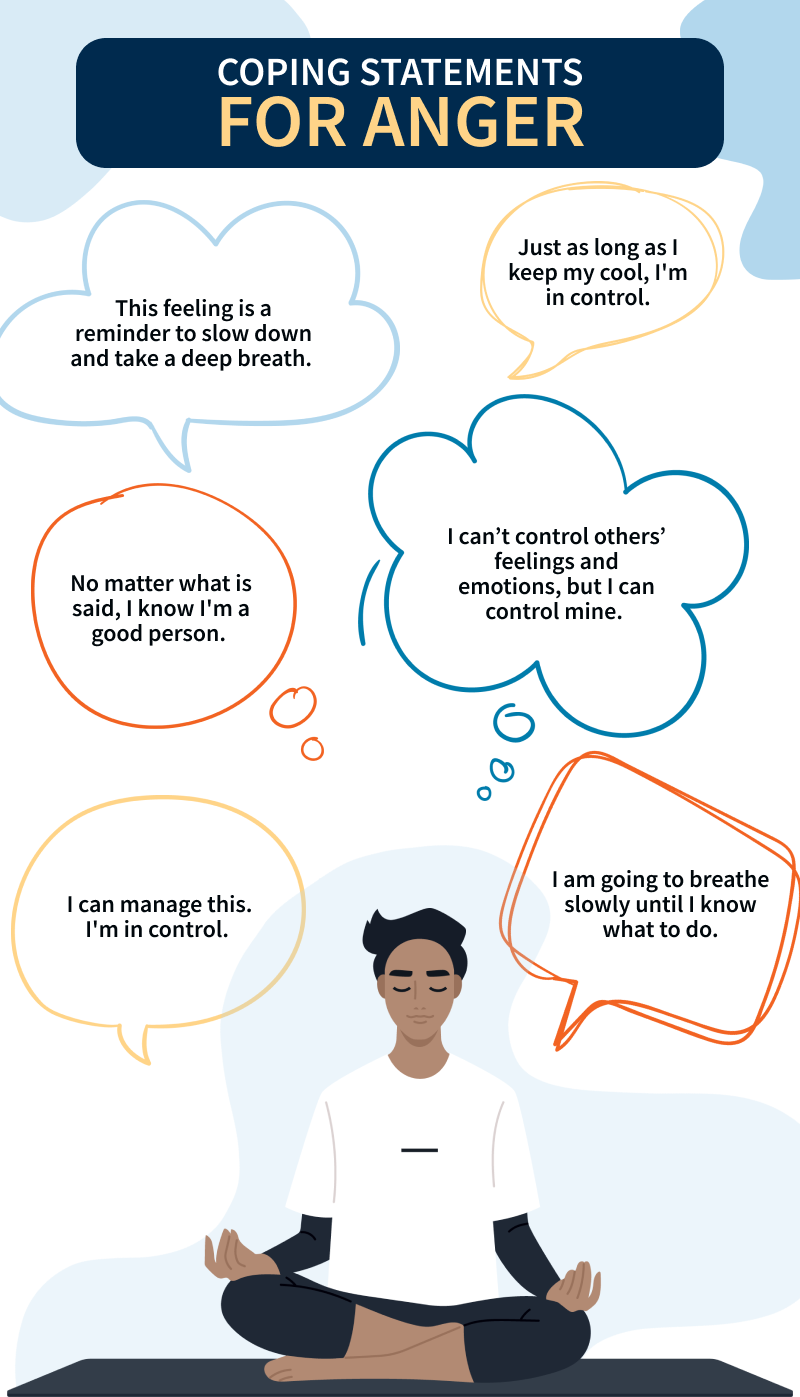Slamming doors, yelling, and storming off in the middle of a conversation might seem like a normal part of your Wednesday at this point. Adolescent boys tend to have a reputation of being angry, at least sometimes. Anger and puberty are seen as going hand-in-hand but really, there might be something deeper going on with your son.
Why do teen boys get so angry?
Everyone gets angry from time to time but the meltdowns, outbursts, and fits of rage thrown by teen boys can make it seem like the world is ending over something minor. What is it that makes them so easy to set off and so hard to calm down?
Hormonal changes
During puberty, teen boys experience a flood of hormones they haven’t had to deal with before. Stress, growth, and sex hormones rush into their brains and bodies, changing how they think and feel. Testosterone, a sex hormone, typically increases to 10 times the levels before puberty. This surge of hormones can lead to muscle growth, facial hair, changes in sleep patterns and appetite, and more intense emotions.
Brain development
Boys’ brains don’t finish developing until their mid-to-late 20’s. Areas of the brain that influence decision-making and impulse control mature at different rates. Research has shown that the amygdala is usually more active in teens than their prefrontal cortexes. But what does that mean?
- Amygdala: Can be thought of as driving emotional or “gut” reactions—quick to react and fueled by intense feelings like fear and anger.
- Prefrontal cortex: Thought to be the more rational part of the brain, it helps people regulate impulse control, reason, and foresee consequences.
Until the prefrontal cortex fully develops, and teens have enough experience in their independence and identity, they’ll have a harder time thinking things through before exploding. The good news is that from the early teen years through the late, the brain matures quickly, and teens gradually get better at regulating their emotions.
Identity creation
Adolescence is also a time where people develop their own identities. Teens crave independence, something that helps them discover who they are as they get ready to go out on their own with less reliance on their parents. Egocentrism (you can think of this as your teen’s “main character energy”) makes teens feel like their experiences are wholly unique and driven by them, which can also cause anger when things don’t pan out the way they planned them.
External pressures
While there is a lot going on inside your son’s body, and brain, they’re also juggling a lot that he can’t control, even though he might want to. Social norms—including those about masculinity—can put a lot of pressure on him to try and fit in, even if they’re not healthy views. Social media takes it even further, with “manosphere” influencers pushing young men to be less emotional and more stoic, less weak and more tough, less submissive and more dominant. Rather than gaining a more flexible, respectful view of others while still being masculine, teen boys might fall into an echo chamber that teaches them to discriminate and put others down because “that’s what men do.”
A more complex picture
You might have heard that teen boys get angry because they have so much testosterone flooding their bodies that they just need an outlet. Recent research shows that may not be the case. Elevated testosterone levels might make it easier (lower the threshold) for teen boys to be more emotionally reactive, but it doesn’t guarantee they will. A bigger factor might be the influences around them.
Having healthy family and friend relationships that model respectful, regulated behavior might reduce meltdowns even when hormone levels are elevated. Being a positive influence for your son and helping him create good relationships with others is one of the most important things that you can do.
Anger is often deep-rooted
Some teen boys are more likely to deal with serious anger issues than others because of their mental health. Adolescence is a period of major change and a time when many mental health issues first arise. Living with a mental health condition on top of all of the hormonal changes, rapid development, and external pressure is intense.
- Depression: It’s easy to think of depression as just sadness, but it’s not. Irritability and sensitivity to criticism are also common, which can result in anger from teens.
- Anxiety: Constant stress made worse by anxiety can put teens on edge. They might feel like they have no other outlet but to get angry.
- Trauma: Teens who experience trauma might get angry to mask how hurt or upset they feel inside. Trauma also affects how the brain develops and emotional regulation.
- Intermittent explosive disorder (IED): Less common than some other mental health conditions, IED is diagnosed because of severe anger/rage issues that escalate quickly and often.
- Neurodivergence: Teens with autism, ADHD, and other neurodevelopmental conditions are also prone to rage attacks.
The relationship between anger and mental health is complicated. But, many times, anger is an outlet, a way for teens struggling with their mental health to express how they feel. Your son might not have the words to tell you what’s wrong because he might not even know something is wrong. Instead, he might lash out because it’s all he knows to do.
What you can do at home
There are some things you can do at home to help your son deal with anger. No matter which strategies you use, be open to listening to how he feels and not just hearing how angry he is.
- Behavior modeling: Be a good role model. If you have trouble regulating your own anger, your son can’t learn how to deal with his own in a healthy way.
- De-escalation: Breathing practices, counting to ten, and mindfully relaxing with coping statements can all help curb an outburst. Teaching these when he’s not angry can help him use them when he is.
- Confronting or blowing off steam: Sometimes, you won’t need to do anything but let him be upset. But when he’s disrespectful or dangerous, don’t enable his rage. Calmly set clear boundaries and expectations.
- Physical activity: Exercise can be a great way to release pent up anger, with some ways being better than others. Aggressive sports, like fighting or combat sports, may not be the best route unless they’re coached by someone calm and thorough, who your son can learn from.
- Calming techniques: Less intensive movement and other physical calming techniques can also help him stay regulated. Yoga, meditating, and taking time to be in nature can allow him to recognize where his calm state of mind is so he can access it.
These techniques might not always work, and they may not be best for your son. He might need support from a professional, too.
When it’s time to get help
Anger, as disruptive as it is, can also be draining and even dangerous. Professional support might be right for your son if he:
- Is always angry or escalates too far too often
- Is violent toward others
- Is self-harming or has suicidal thoughts
- Is skipping or being suspended/expelled from school
- Is behaving recklessly
Reaching out for help doesn’t mean you’ve done anything wrong. Sometimes, you just don’t have all the answers, and that’s okay. At Family First, we can help your son learn to cope with his anger and explore his mental health so he can feel better in our anger management programming for teens. We’ll work closely with you to find what works for your family at home, teach you more about teen anger, and connect you with other parents who are dealing with the same thing. You’re not alone; reach out at 888.904.5947 or contact us online.


